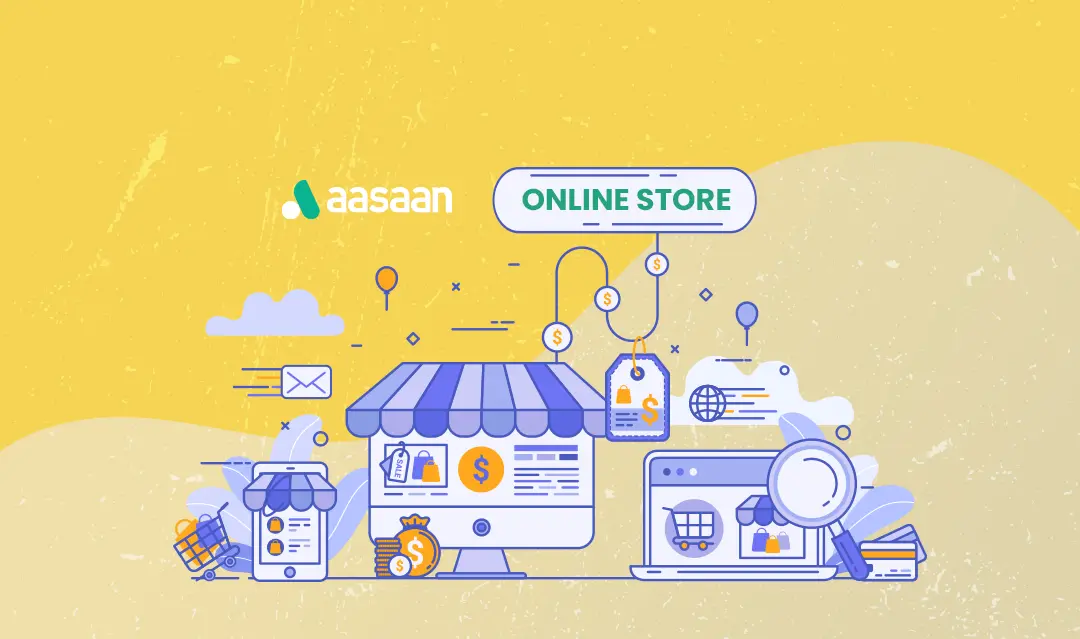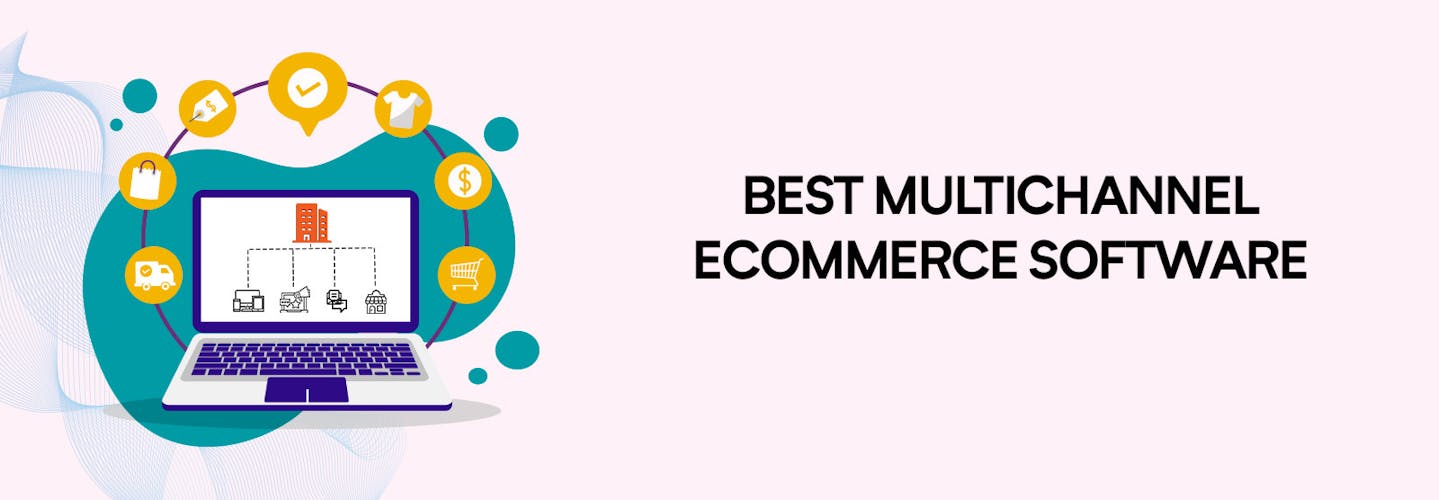
10 Best Multichannel Ecommerce Software to Boost Your Sales in 2025
In today’s digital age, ecommerce has become an essential aspect of any business looking to succeed in the competitive marketplace.
With more and more customers preferring to shop online, it’s crucial for businesses to have a strong online presence to increase their reach and drive sales.
Multichannel ecommerce, in particular, has gained significant popularity in recent years as it allows businesses to sell their products on multiple platforms simultaneously, expanding their customer base and increasing their revenue.
However, managing multiple sales channels can be challenging and time-consuming, which is why multichannel ecommerce software has become a vital tool for businesses looking to streamline their operations and grow their sales.
In this article, we will explore the 10 best multichannel ecommerce software options available in 2025, providing you with valuable insights and information to help you choose the best option for your business.
What is Multichannel E-commerce Software?
Multichannel e-commerce software is a type of software that helps businesses manage and sell their products across multiple online sales channels, such as marketplaces (e.g., Amazon, eBay), social media platforms (e.g., Facebook, Instagram), and their own website.
The software allows businesses to manage their inventory, orders, and shipping across all channels from one central location.
This can help businesses save time, reduce errors, and improve their overall efficiency in managing their e-commerce operations.
Multichannel e-commerce software typically includes features such as product listing management, inventory management, order management, shipping and fulfillment, and analytics and reporting.
Why Multichannel E-commerce Software is Essential ?
1.Centralized Inventory Management
Managing inventory across multiple sales channels can be challenging. Multichannel ecommerce software simplifies this process by centralizing inventory management, allowing you to track and update stock levels in real-time.
This reduces the risk of overselling and ensures a seamless shopping experience for your customers.
2. Streamlined Order Processing
Multichannel ecommerce software streamlines order processing by consolidating orders from all sales channels into a single platform. This enables businesses to fulfill orders more efficiently, reducing the time it takes to process and ship orders.
3. Enhanced Customer Experience
By integrating various sales channels, multichannel ecommerce software ensures a consistent and unified customer experience. Customers can easily navigate your online store, view up-to-date product information, and complete purchases with ease.
The 10 Best Multichannel Ecommerce Software in 2025-25:
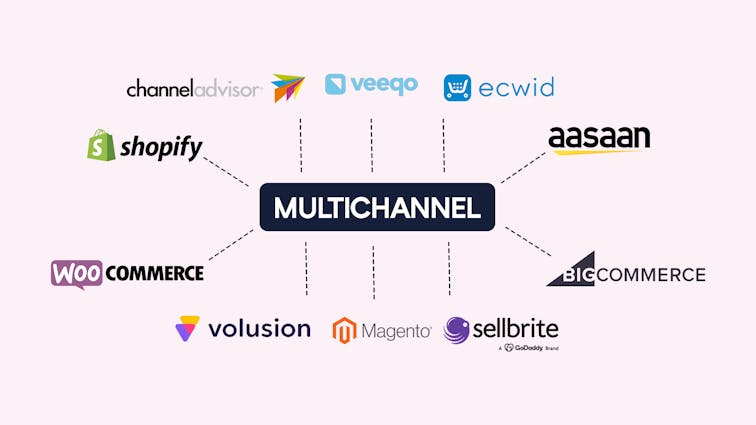
1. Aasaan:
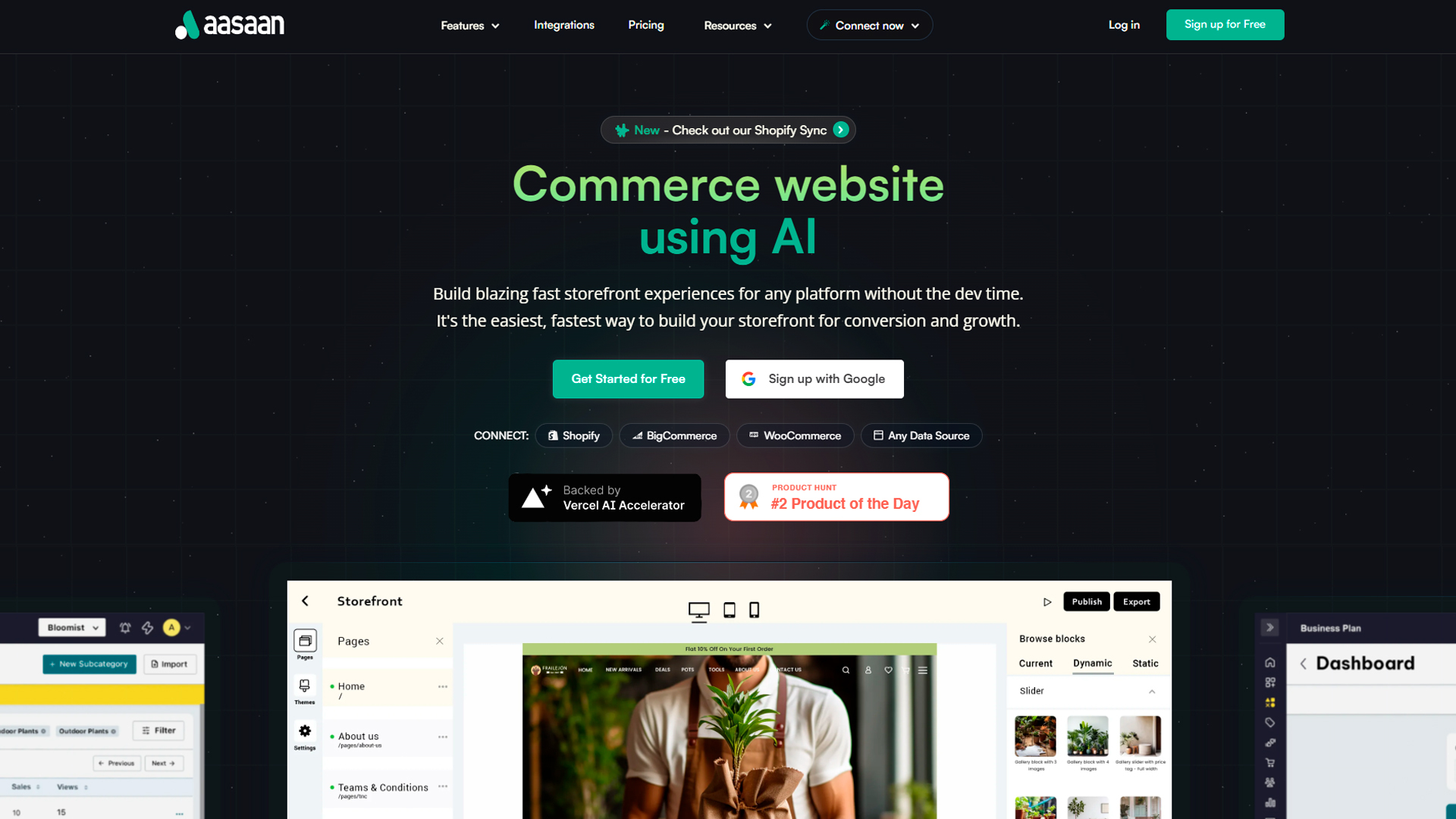
Aasaan is a multichannel eCommerce software that makes it easy for businesses to manage their online stores across multiple platforms. With Aasaan, merchants can sell on marketplaces, social media platforms, and their own eCommerce websites. Some of the key features of Aasaan include:
- User-friendly interface
- Inventory management
- Order management
- Integration with major marketplaces
- Shipping and order tracking
- Payment gateway integration
The Standard plan costs $24 per month when billed monthly or $18 when billed annually. The Premium plan costs $75 per month when billed monthly or $50 when billed annually. The Business plan is priced at $199 per month when billed monthly or $165 per month when billed annually. The Enterprise plan contact sales team.
2. Shopify:

Shopify is one of the most popular multichannel eCommerce software options available in the market. It is a cloud-based platform that provides businesses with everything they need to start, run, and grow an online store.
Shopify enables merchants to sell on multiple channels, including social media platforms, marketplaces, and their own eCommerce websites. Some of the key features of Shopify include:
- Easy to use interface
- A wide range of templates and themes to choose from
- Built-in payment processing
- Shipping and tax calculation
- Inventory management
- SEO optimization
- Analytics and reporting
Shopify offers various pricing plans, starting from $29 per month for the basic plan, which includes all the essential features. The advanced plans offer additional features such as gift cards, advanced report builder, and third-party calculated shipping rates.
3. BigCommerce:
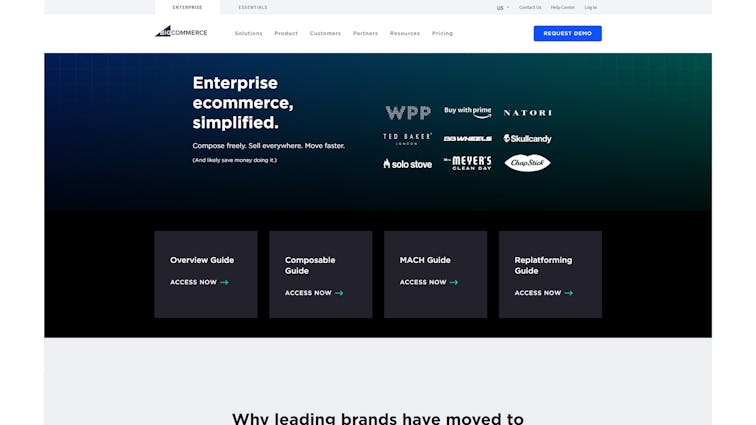
BigCommerce is another popular multichannel eCommerce software option. It is a cloud-based platform that provides businesses with everything they need to start, run, and grow an online store.
BigCommerce enables merchants to sell on multiple channels, including social media platforms, marketplaces, and their own eCommerce websites. Some of the key features of BigCommerce include:
- A wide range of templates and themes to choose from
- Built-in payment processing
- Shipping and tax calculation
- Inventory management
- SEO optimization
- Analytics and reporting
BigCommerce offers various pricing plans, starting from $29.95 per month for the standard plan, which includes all the essential features. The advanced plans offer additional features such as abandoned cart saver, customer groups and segmentation, and product filtering.
4. WooCommerce:
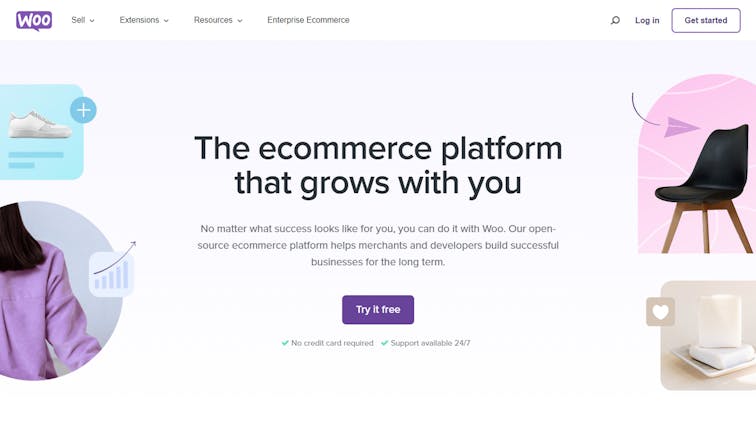
WooCommerce is an open-source eCommerce platform that runs on WordPress. It is a powerful and flexible platform that enables businesses to sell their products on multiple channels. WooCommerce offers various features, including:
- A wide range of themes and plugins to choose from
- Built-in payment processing
- Shipping and tax calculation
- Inventory management
- SEO optimization
- Analytics and reporting
WooCommerce is free to download and use, but you will need to pay for hosting and other associated costs. The platform offers various extensions that you can purchase to add additional features and functionality.
5. Magento:
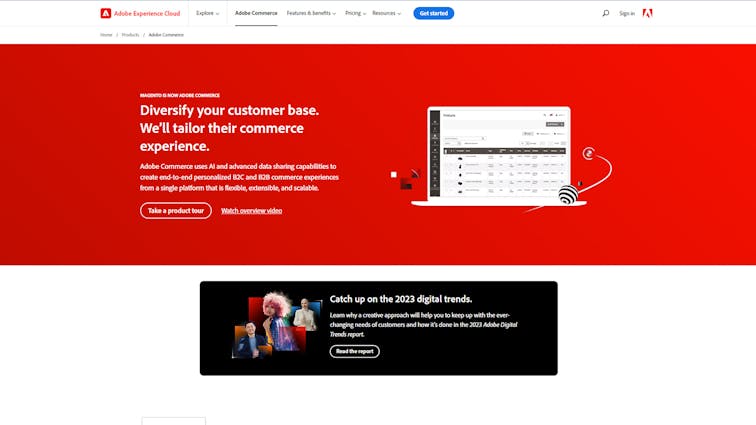
Magento is an open-source eCommerce platform that provides businesses with a range of features and functionalities to sell their products on multiple channels. Magento offers various features, including:
- A wide range of themes and plugins to choose from
- Built-in payment processing
- Shipping and tax calculation
- Inventory management
- SEO optimization
- Analytics and reporting
Magento Open Source is a free version that requires web hosting, extensions, and developers, which can cost from $10,000 to $60,000.
Magento Commerce and Magento Commerce Cloud are paid versions that include advanced features, security, and support, which can cost from $22,000 to $50,000 depending on the annual sales revenue and the hosting service.
6. Volusion:

Volusion is a cloud-based eCommerce platform that provides businesses with everything they need to start, run, and grow an online store.
Volusion enables merchants to sell on multiple channels, including social media platforms, marketplaces, and their own eCommerce websites. Some of the key features of Volusion include:
- Easy to use interface
- A wide range of templates and themes to choose from
- Built-in payment processing
- Shipping and tax calculation
- Inventory management
- SEO optimization
- Analytics and reporting
Four packages to choose from. Annual plans are cheaper than monthly ones. Personal: $35/month. Professional: $79/month. Business: $299/month. Prime: Based on GMV.
7. Sellbrite
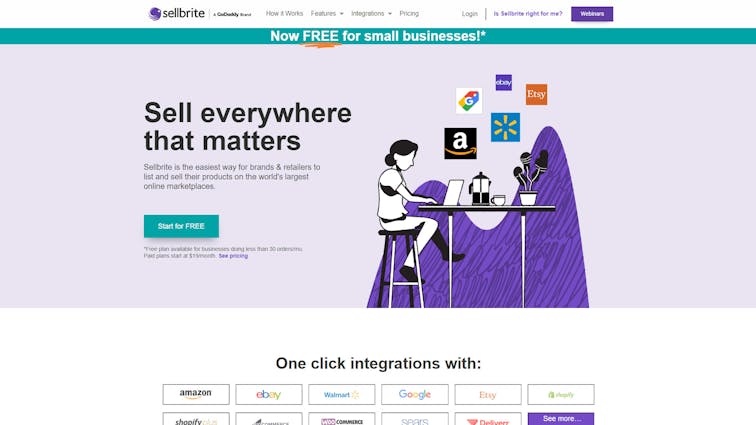
Sellbrite is another popular multichannel eCommerce software that helps businesses sell on multiple platforms. With Sellbrite, merchants can easily manage their inventory, orders, and listings across marketplaces, social media platforms, and their own eCommerce websites. Some of the key features of Sellbrite include:
- Centralized inventory management
- Order management
- Multichannel listing management
- Automated shipping and order tracking
- Advanced reporting and analytics
Sellbrite’s pricing plans start at $49/month for up to 100 orders and go up to $499/month for up to 10,000 orders.
8. Veeqo
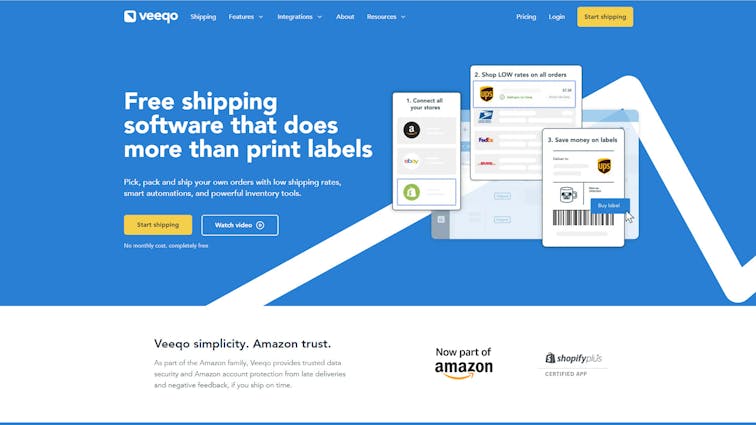
Veeqo is an all-in-one inventory and order management software that helps businesses sell across multiple channels.
With Veeqo, merchants can manage their inventory, orders, and shipping across multiple marketplaces, social media platforms, and their own eCommerce websites. Some of the key features of Veeqo include:
- Centralized inventory management
- Multichannel order management
- Shipping and fulfillment management
- Integration with major carriers
- Reporting and analytics
Veeqo’s pricing plans start at $156/month for up to 1000 orders and go up to $646/month for up to 10,000 orders.
9. ChannelAdvisor
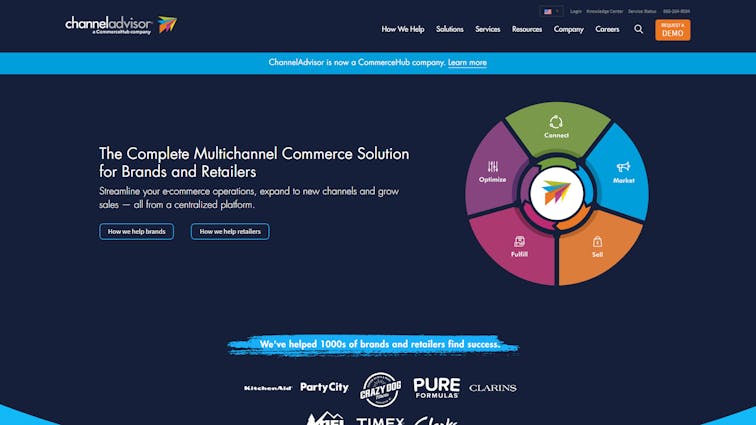
ChannelAdvisor is a multichannel eCommerce platform that helps businesses sell across marketplaces, social media platforms, and their own eCommerce websites.
With ChannelAdvisor, merchants can manage their inventory, orders, and listings across multiple channels from a single platform. Some of the key features of ChannelAdvisor include:
- Centralized inventory management
- Multichannel order management
- Listing and product optimization
- Automated repricing
- Advanced analytics and reporting
ChannelAdvisor’s pricing plans are customized based on each business’s needs.
10. Ecwid
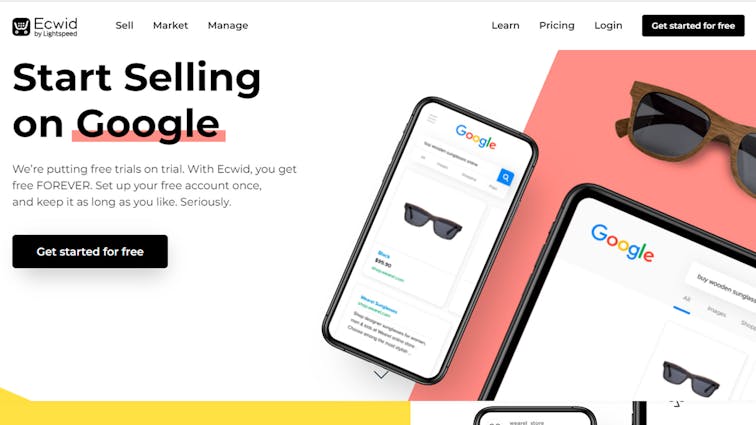
Ecwid is a multichannel eCommerce software that helps businesses sell across multiple platforms, including marketplaces, social media platforms, and their own eCommerce websites.
With Ecwid, merchants can easily manage their inventory, orders, and listings across multiple channels. Some of the key features of Ecwid include:
- Easy to use interface
- Multichannel order management
- Integration with major carriers
- Secure payment processing
- Advanced analytics and reporting
Ecwid’s pricing plans start at $12.50/month for the Venture plan which allows you to sell up to 100 physical or digital items per month. The Business plan costs $29.17/month and allows you to sell up to 2,500 items.
The Unlimited plan costs $82.50/month and removes item limits and includes all the sales channels. There’s also a free plan available for merchants with up to 10 products.
Benefits of Multichannel eCommerce management Software
Multichannel eCommerce software offers several benefits for businesses, including:
1. Increased sales:
By selling your products on multiple channels, you can reach a wider audience and increase your sales.
2. Improved customer experience:
Multichannel eCommerce software enables you to provide a seamless shopping experience for your customers, regardless of the channel they use to purchase your products.
3. Simplified inventory management:
Multichannel eCommerce software enables you to manage your inventory from a single platform, making it easier to keep track of your stock levels.
4.Enhanced analytics and reporting:
Multichannel eCommerce software provides you with detailed analytics and reporting, enabling you to make informed decisions about your business.
5. Optimized Shipping:
Multichannel e-commerce software often integrates with popular shipping carriers, allowing businesses to choose the best shipping options, reduce costs, and improve customer satisfaction.
6. Enhanced Reporting and Invoicing:
Multichannel e-commerce platforms provide comprehensive reporting and invoicing features, giving businesses valuable insights into sales performance, trends, and customer preferences, ultimately supporting data-driven decision-making.

Who Should Consider Using Multichannel E-commerce Platforms?
Multichannel e-commerce platforms are suitable for a wide range of businesses, from small startups to large enterprises.
The following types of businesses should consider using multichannel e-commerce platforms:
1. Online retailers:
Businesses that sell products online can benefit from multichannel e-commerce platforms, as they enable them to expand their reach by selling on multiple marketplaces and social media platforms. This helps increase brand visibility, customer base, and revenue.
2. Brick-and-mortar stores:
Physical stores looking to expand their presence online should consider using multichannel e-commerce platforms.
This allows them to leverage the advantages of both online and offline sales channels, providing customers with a seamless omnichannel shopping experience.
3. Wholesalers and manufacturers:
Wholesalers and manufacturers that want to sell their products directly to consumers can benefit from multichannel e-commerce platforms.
These platforms enable them to efficiently manage their inventory, orders, and shipping processes while reaching a broader audience.
4. Dropshipping businesses:
Businesses that rely on dropshipping can benefit from using multichannel e-commerce platforms, as these platforms simplify the process of managing inventory, orders, and shipping across multiple sales channels.
This helps ensure a seamless customer experience and timely order fulfillment.
5. Niche businesses:
Businesses that cater to a specific niche or target audience can benefit from multichannel e-commerce platforms by expanding their reach and tapping into new customer segments through various sales channels.
6. Businesses seeking to scale:
Companies looking to grow their online presence and sales should consider using multichannel e-commerce platforms.
These platforms offer advanced features and integrations that enable businesses to scale efficiently while maintaining a consistent customer experience.
FQA’s:
1: Can I use multichannel ecommerce software with my existing ecommerce platform?
Yes, most multichannel ecommerce software solutions are designed to integrate with popular ecommerce platforms, allowing you to expand your online presence without changing your existing platform.
2: Is multichannel ecommerce software suitable for small businesses?
Yes, many multichannel ecommerce software solutions offer flexible pricing plans and features that cater to businesses of all sizes, including small businesses.
3: How does multichannel ecommerce software help improve customer experience?
Multichannel ecommerce software helps improve customer experience by providing a consistent and unified shopping experience across all sales channels. It also simplifies inventory management and order processing, ensuring that customers receive accurate product information and timely deliveries.
4: What should I consider when choosing a multichannel ecommerce software solution?
When choosing a multichannel ecommerce software solution, consider factors such as ease of integration with your existing ecommerce platform, supported sales channels, inventory management and order processing features, pricing plans, and customer support.
5. Is There Specific Software for Multi-Channel Sales?
Yes, there are specific multichannel e-commerce software solutions that help businesses manage multi-channel sales. These platforms, such as Aasaan, Shopify, BigCommerce, Magento Commerce, and Sellbrite etc.




